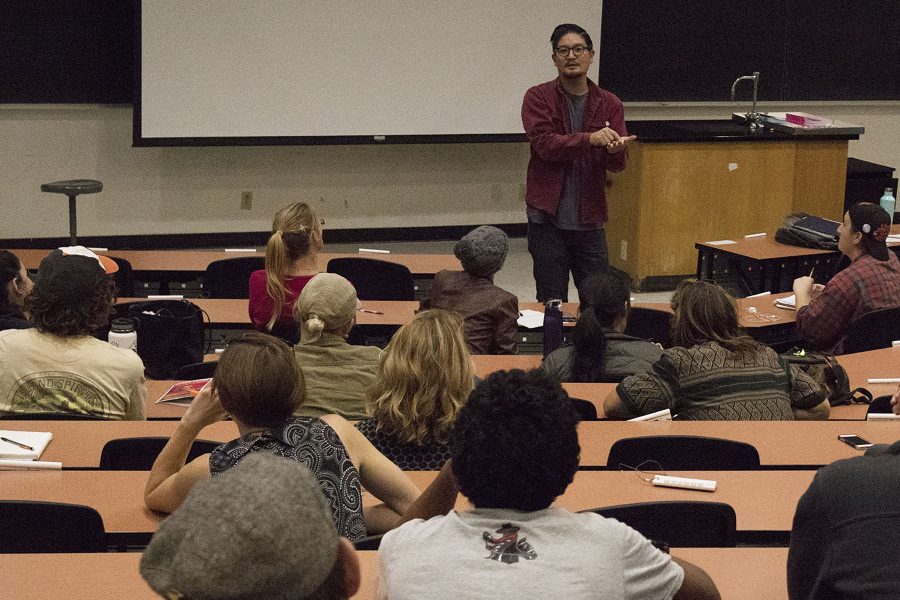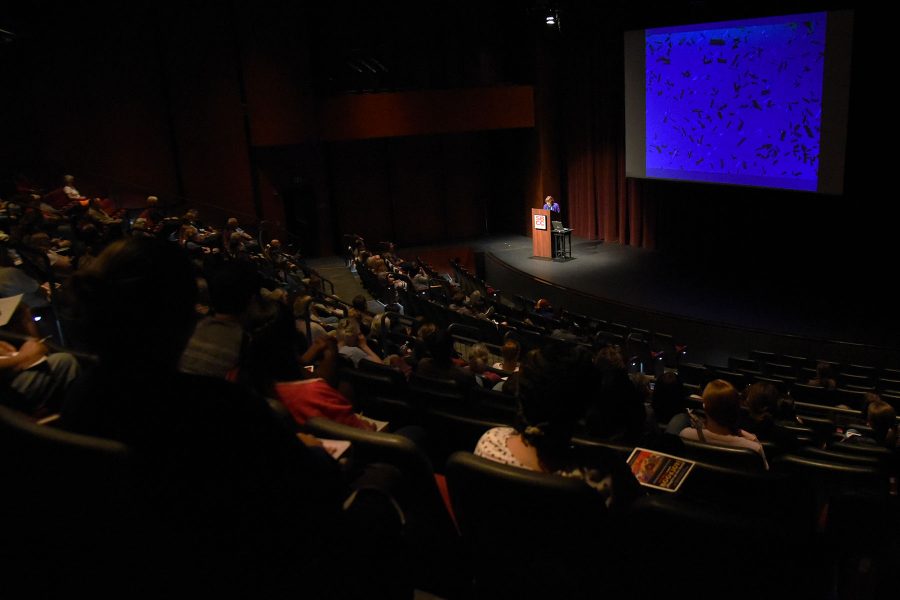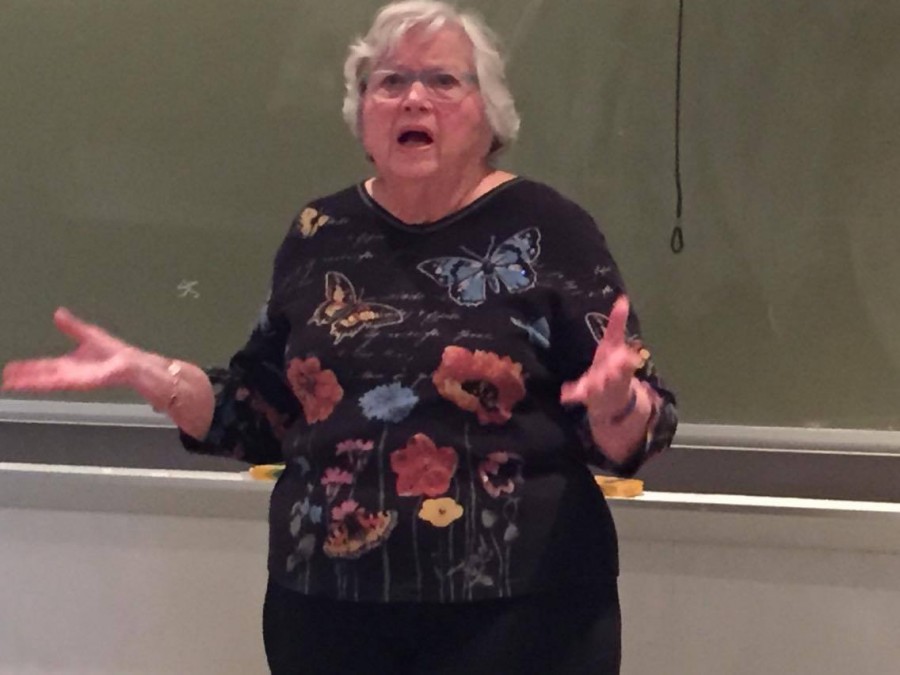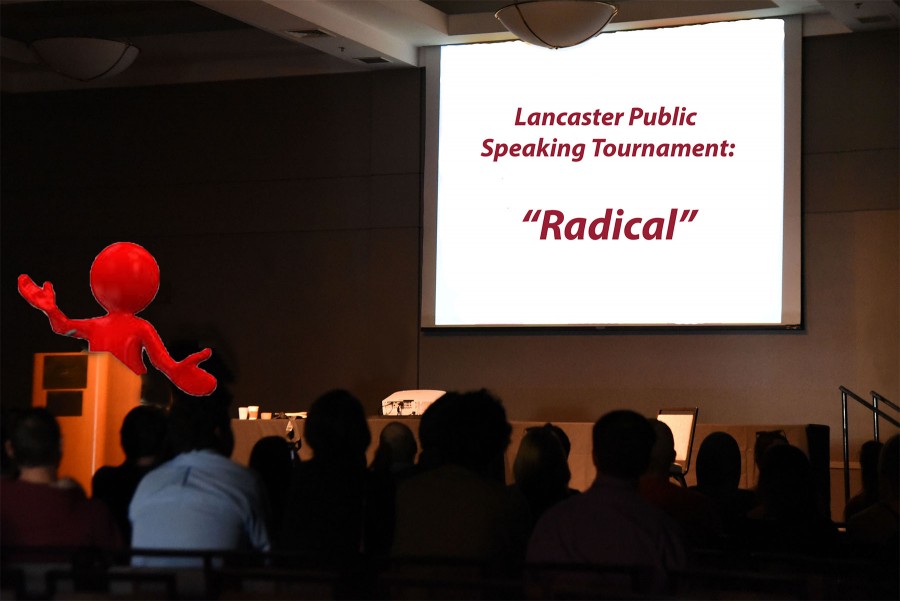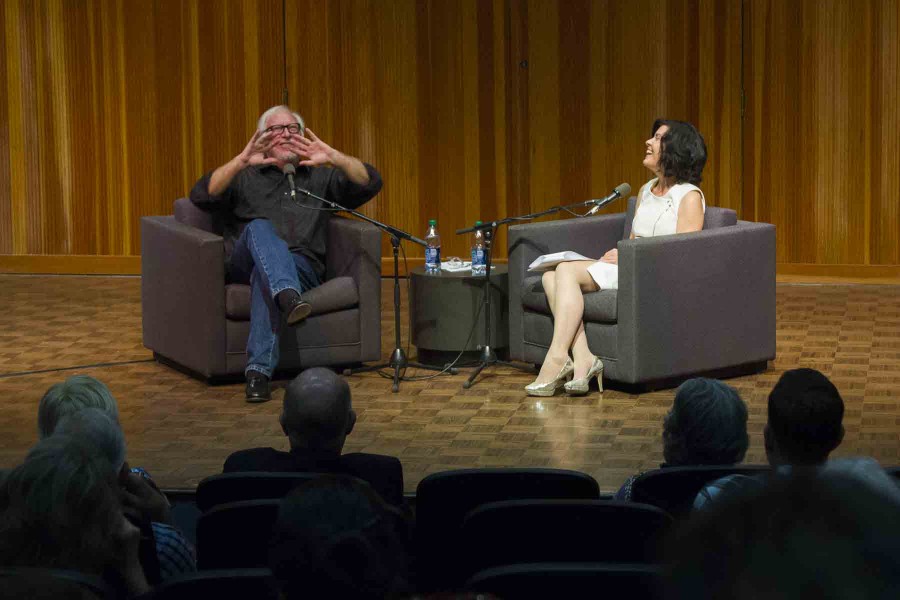To all the single ladies out there, if you like piña coladas and getting caught in the rain: James Ellroy is available and on the prowl.
The self-proclaimed “slick trick with a donkey dick” jestingly solicited dates before he stepped on stage at City College’s Garvin Theatre Tuesday Nov. 27 to discuss the infamous 1947 Black Dahlia murder.
“I wanted to do one thing: write down the too-short life of Elizabeth Short,” Ellroy said. “I grew up obsessed with crime and was entirely dedicated to avenge devastated women.”
At the age of 11, Ellroy came home Jun. 22, 1958 and the police told him that his mother had been found murdered in the same manner as the Black Dahlia.
“It was a ravaging arrogant and selfish male libido that killed her,” Ellroy said. “The question isn’t who killed her. The question is, ‘What was going on in their head?’ Unknowability is a language all on its own.”
When Ellroy went to live with his father, he received a book that described the Black Dahlia murder.
“I experienced fear and revulsion, seduction and hurt,” Ellroy said. “I was afraid to go to sleep because I’d dream of Elizabeth Short.”
Short dreamt of Hollywood fame and glamour so she moved to Los Angeles. Her acting career never took off because of her alleged laziness and her parasitic nature.
She was found mutilated Jan. 15, 1947 in an abandoned field on the corner of 39th and Norton. Her body had been sliced in half and drained of blood, her mouth had been torn from ear to ear in a Glasgow smile, her right breast had been removed, and her left thigh had a chunk missing. Despite the carnage, her body had been washed and posed with her hands at right angles. Her killer was never found.
The press sensationalized the case and Short was later nicknamed “The Black Dahlia.” The true origin of the moniker is unknown, but some suspect it was because of her penchant for wearing black dresses with flowers in her hair. Others suspect it was a reference to “The Blue Dahlia,” a movie that had come out earlier that year.
Ellroy soon became obsessed with the Black Dahlia. During a press tour for his book, his girlfriend at the time rejected his marriage proposal because she claimed that he only loved dead women and “she wasn’t sure if she was ready to make that commitment.”
“Elizabeth Short died January 15. On January 17, the Black Dahlia was born and she reached a level of fame Elizabeth never could,” said Anne Redding, co-chair of the justice studies department. “If the killer was an artist, what he left at 39th and Norton was his masterpiece. She was beautiful, even in death.”
Redding called the Black Dahlia “a cautionary tale” rather than a case that needs to be solved, but never will be resolved.
In 1987, Ellroy wrote a novel “The Black Dahlia” which used the case as a narrative device. It was later adapted into a movie by director Brian De Palma in 2006.
“I had to err on the side of empathy in my portrayal of Elizabeth Short,” Ellroy said. “I believe I’ve been in contact with her in the beyond and she approves of my fiction. … She wanted to be famous and she paid a terrible price for that. There is no language that can adequately describe the horror that befell Elizabeth Short.”














